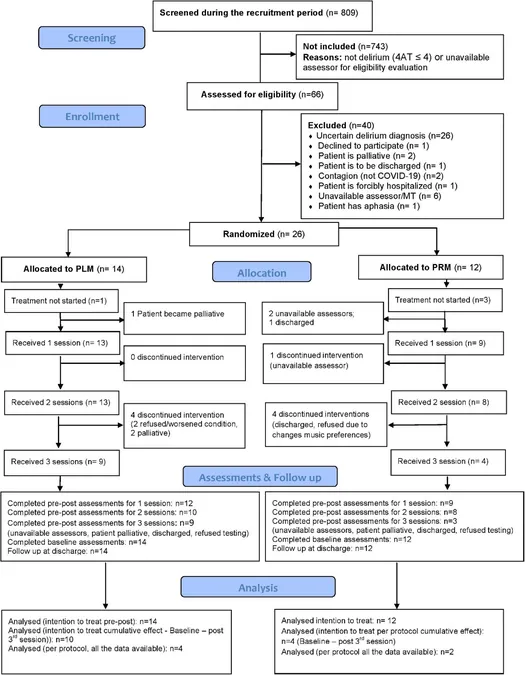
Transforming Geriatric Care: The Power of Music in Combating Delirium
2025-05-02
Author: Arjun
Unlocking the Mystery of Delirium
Delirium—a sudden, acute change in mental status—affects over 50% of hospitalized patients, especially the elderly. This complex condition is characterized by confusion, cognitive dysfunction, and fluctuating symptoms, posing serious risks for recovery, prolonged hospital stays, and even increased mortality rates.
Why Non-Pharmaceutical Methods?
While pharmacological treatments exist, non-pharmacological, multicomponent approaches show promise in preventing delirium. These methods not only reduce agitation but also enhance the overall well-being of patients. Studies hint that music interventions (MIs), whether live or recorded, may be crucial in this battle against delirium.
The Promise of Music Interventions (MIs)
Research from earlier trials has shown that MIs can significantly improve behavioral and psychological symptoms in patients suffering from conditions like dementia—a strong indicator of potential efficacy in treating delirium. Encouragingly, patients often report high levels of enjoyment and engagement with music, making it a compelling option.
A Groundbreaking Pilot Study
To explore this further, a recent pilot study was initiated to assess the feasibility of MIs in managing delirium symptoms among acute geriatric patients. The study aimed to establish a foundation for future randomized controlled trials (RCTs) by evaluating recruitment rates, intervention adherence, and patient safety.
Detailed Study Structure
Conducted within Oslo University Hospital's acute geriatric ward, the study involved 26 admitted patients diagnosed with delirium. Participants were divided into two groups: one receiving Preferred Recorded Music (PRM) through loudspeakers and the other enjoying Preferred Live Music (PLM) delivered by a trained music therapist.
Engagement and Outcomes
With sessions spread over three consecutive days, participants spent 30 minutes interacting with their assigned music type daily. The aim was to enhance emotional connections and minimize delirium symptoms. Initial results showcased promising recruitment rates and significant engagement with the interventions.
Feasibility: Numbers Don't Lie
The data revealed practical insights: while there was a high retention rate in the PLM group (64%), the overall adherence to the intervention protocols varied, particularly in the PRM group (only 17%). However, retention rates were significantly higher for participants who engaged with live music, indicating a potential preference for interactive therapies.
What’s Next?
Despite some limitations, including a lack of control groups and the underpowered design for efficacy analysis, this pioneering study emphasizes the feasibility of integrating artistic therapies into geriatric care. It opened avenues for further in-depth studies exploring how music could revolutionize the treatment landscape for delirium and ultimately improve the quality of life for elderly patients.
Conclusion: Music as Medicine
As research progresses, the implications of using music as a therapeutic tool in treating delirium could reshape acute care practices. With compelling evidence pointing towards its effectiveness and patient satisfaction, music might not just be a pleasant distraction but a vital part of clinical management strategies in hospitals.
 Brasil (PT)
Brasil (PT)
 Canada (EN)
Canada (EN)
 Chile (ES)
Chile (ES)
 Česko (CS)
Česko (CS)
 대한민국 (KO)
대한민국 (KO)
 España (ES)
España (ES)
 France (FR)
France (FR)
 Hong Kong (EN)
Hong Kong (EN)
 Italia (IT)
Italia (IT)
 日本 (JA)
日本 (JA)
 Magyarország (HU)
Magyarország (HU)
 Norge (NO)
Norge (NO)
 Polska (PL)
Polska (PL)
 Schweiz (DE)
Schweiz (DE)
 Singapore (EN)
Singapore (EN)
 Sverige (SV)
Sverige (SV)
 Suomi (FI)
Suomi (FI)
 Türkiye (TR)
Türkiye (TR)
 الإمارات العربية المتحدة (AR)
الإمارات العربية المتحدة (AR)